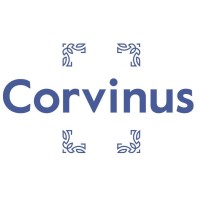Hungarian Regional Science Association (HRSA)
7621 Pécs, Papnövelde u. 22.
H-7601 Pécs, P.O. Box 199.
SWIFT: MKKBHUHB
IBAN: HU37 50800111-11090603-00000000
Tel: +36 (72) 523 800
E-mail: mrtt@mrtt.hu
Facebook: mrtt.hu
Opportunities of Core and Peripheral Regions for their Sustainable Future
27-30 October 2020
♦ ONLINE EVENT ♦
Detailed programme available.
Participation of the audience at plenary sessions is free of charge.


Co-organiser: Department of Geography, Geoeconomy and Sustainable Development
Corvinus University of Budapest
18 online sessions are organized in Hungarian, 4 online sessions are in English. For the complete program please visit the Hungarian site of the conference.
Participation of the audience at plenary sessions is free of charge.
♦ PROGRAMME ♦ Plenary sessions in English ♦
28 October 2020 ♦ Wednesday ♦ 15.00-17.00 ♦ Plenary session 1 ► MS Teams Live
Eveline van Leeuwen Wageningen University and Research; AMS Institute; ERSA
City & Countryside in the COVID19 era: a re-valuation of space
Jan Fidrmuc Université de Lille
What Has the EU Ever Done for Us? Regional Aid
► VIDEO (mp4)
29 October 2020 ♦ Thursday ♦ 15.00-17.00 ♦ Plenary session 2 ► MS Teams Live
Zoltán Elekes Centre for Economic and Regional Studies
Foreign-owned firms as agents of structural change in regions
Alexander Wandl TU Delft
Territories-in-between (TiB) – (missed) opportunities for sustainable spatial development?
► VIDEO (mp4)
♦ PROGRAMME ♦ Online sessions in English ♦
Session 1 Innovation and Development in Linked Regions
♦ 27 October 2020 ♦ Tuesday ♦ 12:30-14:30 (Zoom)
Chair: Balázs Lengyel, CERS Institute of Economics lengyel.balazs@krtk.mta.hu
Kelyane Silva, UFRJ Science Park – Lydia Bares, University of Cadiz – Danilo S. Carvalho, Federal University of Rio de Janeiro
Exploration of gender differences in patents to mitigate climate change in Spain and Portugal
Milad Abbasiharofteh, Leibniz Institute – Dieter F. Kogler, University College Dublin – Balázs Lengyel, KRTK; BCE
Atypical combination of technologies in regional co-inventor networks
Gergő Tóth, University College Dublin; KRTK – Zoltán Elekes, KRTK; Umea University – Changjun Lee, University College Dublin – Adam Whittle, University College Dublin – Dieter F. Kogler, University College Dublin
Technology network structure conditions economic resilience of regions
Zsolt Csáfordi, Erasmus University – Frank van Oort, Erasmus University
Skill-relatedness in cities and firms. Disentangling the effects of skill-related labor force and agglomeration economies
Zsófia Vida, MTA Library – István Járay, KRTK – Balázs Lengyel, KRTK, BCE – Sándor Soos, MTA Library
Research collaboration network of Hungarian PhD holders – How to find the ideal collaboration partner for your scientific career?
Michele Acquaro, EC Joint Research Centre – Giacomo Damioli, EC Joint Research Centre – Balázs Lengyel, KRTK; BCE
Innovative mergers and acquisitions across regions and European Integration
Session 2 Territorialisation of the Circular Economy
♦ 27 October 2020 ♦ Tuesday ♦ 9.00-17.00 and
♦ 28 October 2020 ♦ Wednesday ♦ 10.00-12.00 (MS Teams)
Chairs: Alexander Wandl TU Delft & Viktor Varjú CERS Institute for Regional Studies varju@rkk.hu
Libera Amenta, University of Naples Federico II, Department of Architecture (DiARC); Delft University of Technology, Department of Urbanism – Anna Attademo, University of Naples Federico II, Department of Architecture (DiARC)
Looking for ecological continuity in urban systems through the co-design of wastescapes
Andreas Obersteg – Alessandro Arlati – Jörg Knieling
Making cities circular: experiences from the living lab Hamburg-Altona
Kelyane Silva, Lydia Bares – Danilo S. Carvalho
Exploration of gender differences in patents to mitigate climate change in Spain and Portugal
Magdalena Dragan
Managing organic municipal waste in Romania: national challenges and regional differences
Bernadett Horváthné Kovács – Bernadett Nagy – Alexander Titov, Szent István University Kaposvar Campus Faculty of Economic Science Institute for Methodology – Zsófia Pintér, Szent István University Kaposvar Campus Institute for Regional and agricultural economics
Insights from Spatial Modeling of Key Territorial Parameters of Circular Economy
Zoltán Gabnai – Ardit Sertolli – Albiona Pestisha –– Attila Bai, Faculty of Economics and Business, University of Debrecen – Kornél Németh – Erzsébet Péter – Nóra Mezőfi, Institute of Applied Management Sciences, Nagykanizsa Campus of the University of Pannonia
Opportunities of wastewater heat utilization for heating and cooling of urban buildings
Faisal Aldebei – Károly Ihrig, Doctoral School of Management and Business, University of Debrecen
Urban Mining Potentials: a Study of the Spatial Distribution of Accumulated Material Stocks
Zoltán Palotai, Ministry for Innovation and Technology
The potentials of the short supply chains and their applicability in practice
Dávid Fehérvári, Ministry for Innovation and Technology
Individual and institutional responsibility in the prevention and reduction of illegal municipal waste
Csilla Papp, Ministry for Innovation and Technology
Local Recycling Platforms: Second-hand/Second chance: The new life of the vacant municipally owned premises
Makai Martina, Ministry for Innovation and Technology
The role of the independent aggregator in the formation and operation of energy communities
Ferenc Hizó, Ministry for Innovation and Technology
Waste management concessions in practice
Tamás Rentz, Ministry for Innovation and Technology
The importance of industrial symbiosis and its possibilities
Nóra Rodek, Ministry for Innovation and Technology
CSR EMAT as a concept supporting sustainability
Ágnes Óvári, KRTK Institute for Regional Studies; University of Pécs
Life Cycle Assessment as a supporting tool for Circular Economy – in the mirror of Pécs case
Cristina Lincaru – Speranța Pîrciog, National Scientific Research Institute for Labour and Social Protection (INCSMPS)
Mapping transitions in Circular Economy across EU at regional level
Viktor Varjú – Alexander Wandl – Andreas Obersted – Gilda Berutti – Sue Ellen Taelman – Marcin Dąbrowski
Assessing Circular Economy Transition in cities – a Tool based on six case comparison
Session 3 Core and Periphery in Central and Eastern Europe
♦ 30 October 2020 ♦ Friday ♦ 9.00-12.00 (MS Teams)
Chair: Gábor Lux CERS Institute for Regional Studies lux@rkk.hu
Ildikó Egyed research fellow, KRTK Institute for Regional Studies
Rethinking the role of new EU industrial policy and territorial cohesion
Krisztina Sőreg visiting fellow, University of Malaga, Faculty of Economics and Business Studies
The Comparison of Central and Eastern European Countries’ Economic Growth in a Centre-Periphery Perspective
Sara Elhadad, János Szentágothai Research Centre, Department of Building Structures and Energy Design, Faculty of Engineering and Information Technology, University of Pécs; Assistant Lecturer at Dept.Architecture Engineering, Minia Univesity
The Impact of Pandemic Covid-19 on Built Environment
Csaba Lakócai, KRTK Institute of World Economics
The role of location in the functioning of a local currency: la gonette case study
Phan Van-Thanh, Szent István University, Kaposvár; Hanoi University of Science and Technology, Hanoi
The Competitive Impact of Corporate Social Responsibility on Small and Medium Enterprises: An Empirical Research in Vietnam
Zsuzsanna Zsibók research fellow – Balázs Páger junior research fellow, KRTK Institute for Regional Studies
Paths of long-run economic convergence scenarios for the Hungarian counties
Štefan Rehák associate professor – Tomáš Černěnko assistant professor – Oliver Rafaj assistant professor, Department of Public Administration and Regional Development, Faculty of National Economy, University of Economics in Bratislava
The rise of new radical right in Slovakia – regional context
Katalin Kovács director – Gergely Tagai research fellow, KRTK Institute for Regional Studies
Rural shrinkage and peripherality: East-Central European specificities
Gusztáv Nemes – Éva Orbán, KRTK Institute of Economics – Kyra Tomay, Department of Sociology, University of Pécs
Split realities – dilemmas about rural/gastro tourism as a tool for territorial development
Gábor Lux senior research fellow, KRTK Institute for Regional Studies
Choosing the right scale: The boundaries of culture-based development in Pécs, Hungary
Session 4 Consequences of Multipolarisation on the Core–Periphery Relationships
♦ 28 October 2020 ♦ Wednesday ♦ 12.00-15.00 (MS Teams)
Chair: Viktor Eszterhai Corvinus University of Budapest viktor.eszterhai@uni-corvinus.hu
Nuno Morgado assistant professor, Department of Geography, Geoeconomy and Sustainable Development, Corvinus University of Budapest
Portugal: Between the Maritime Tradition and the Constraints of the EU Membership
Péter Klemensits senior researcher, Pallas Athene Geopolitical Research Institute
The effects of the 21st Century New Maritime Silk Road on the changing core-periphery relationships: The case of the Philippines
Hnin Mya Thida PhD candidate, Relations Multidisciplinary Doctoral School, Corvinus University of Budapest
The impact of great powers' competition on the strategies of small countries
Péter Tamás Bózsó PhD candidate, Institute of Geography and Earth Sciences, University of Pécs
The new LNG Terminal in Croatia – geopolitics reshapes the market
Fanni Maráczi PhD candidate, Relations Multidisciplinary Doctoral School, Corvinus University of Budapest
The Status of Taiwan in a Multipolar World
Wang Renxin PhD candidate, Relations Multidisciplinary Doctoral School, Corvinus University of Budapest
Chinese Foreign Policy under the Context of Guanxi
Marat Uraimov PhD candidate, Relations Multidisciplinary Doctoral School, Corvinus University of Budapest
China’s emerging political and economic dominance in the OSCE region: Chinese infrastructural loans in Central Asia
Ráhel Czirják PhD candidate, Institute of Geography and Earth Sciences, University of Pécs
African Economy in the Shadow of (Neo)colonizers
Eszterhai Viktor assistant professor, Department of Geography, Geoeconomy and Sustainable Development, Corvinus University of Budapest
Multipolarity in the Age of Interconnectivity
REGISTRATION ► Registration website
Registration fee (for non-domestic participants and organisations): 20 EUR / presentation.
Registration fee (for domestic participants): 7000 HUF / presentation.
Registration period: From 10 September to 15 October 2020. Payment is required after abstract acceptance.
Participation of the audience at plenary sessions is free of charge, registration is required.
Please ► REGISTER. Registration ended.
Registration deadline: 12 noon (pm) (CET) 23rd of October, 2020.
CONTACT
Szilárd Rácz, HRSA secretary szracz@rkk.hu. The detailed program of sessions will be announced at the middle of October 2020 in the HRSA website: http://www.mrtt.hu/en/.
We are looking forward to meeting you at the online Annual Conference of HRSA.
Kind regards,
Zoltán Gál, President of HRSA